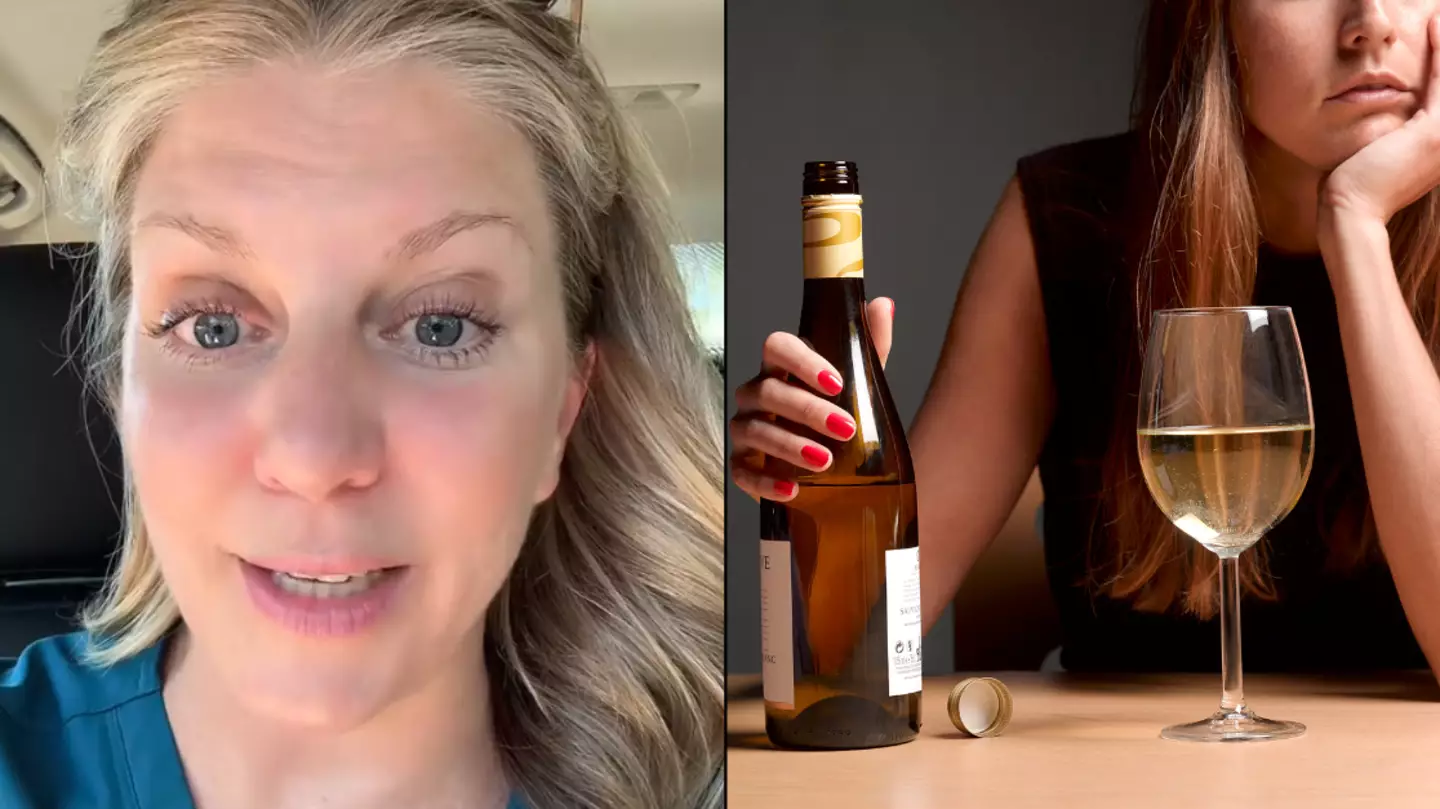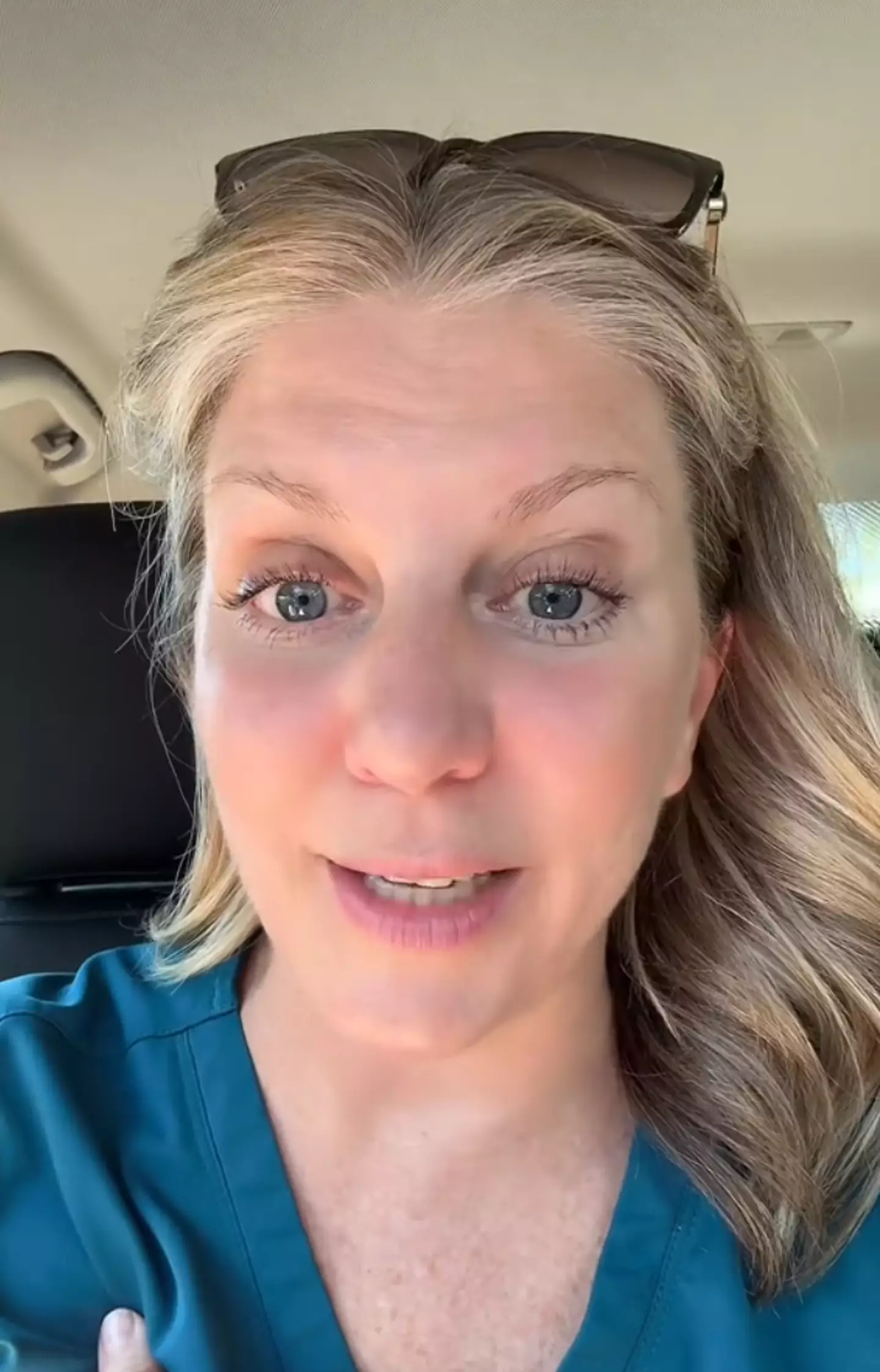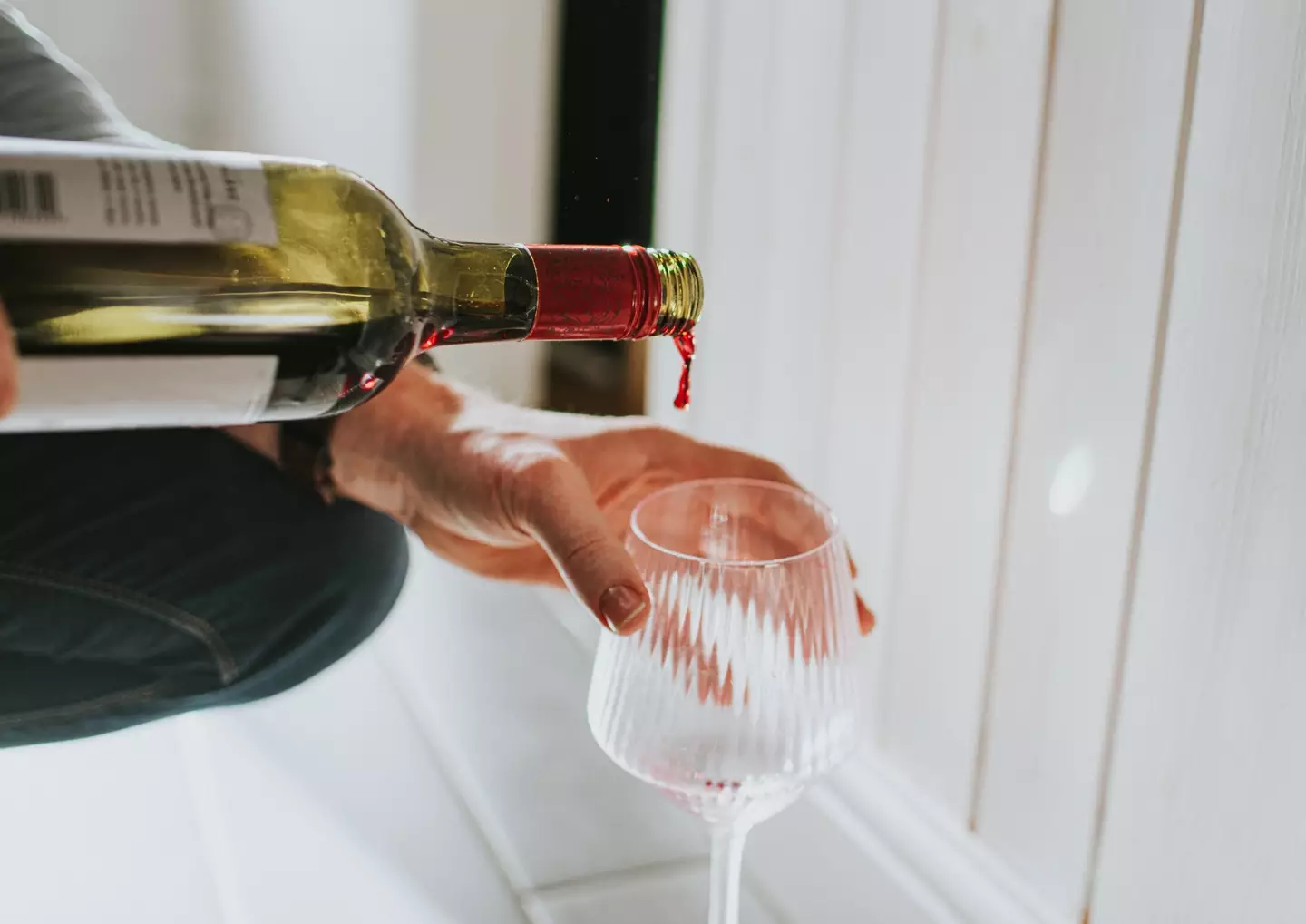
It's funny what secrets people can keep when they set their mind to it, isn't it?
Although someone may seem like their usual polished self on the outside, managing to keep up with the hustle and bustle of life while tending to their relationships, things can be a lot different behind closed doors.
And sometimes, it can even take a second for them to realise there is something going on for themselves.
Just ask Julie McFadden - as the self-proclaimed former 'high-functioning alcoholic' has revealed how she managed to disguise her drinking problem for several years while continuing to juggle her daily responsibilities.
Advert
Although she is usually sharing advice about how to cope with death on social media, the hospice nurse also posts content for her 1.5million TikTok followers where she discusses her journey to sobriety.
And in one of her latest videos, Julie opened up about how she managed to get back on the wagon and stay there, while hardly anyone in her life actually knew that she was suffering from alcoholism.
Giving people an insight into what a 'high-functioning alcoholic looks like', the nurse said: "I did not drink everyday, I still had a job, I had never been to jail, never had a DUI.
"In fact, many close people in my life would not have considered me an alcoholic. Even in the recovery world, calling someone high-functioning is...some people don't like it.
"And I get it, an alcoholic is an alcoholic. The reason why I stay stuff like high-functioning alcoholic is that alcoholism is so misunderstood in the world."

She believes that a lot of people presume that those who don't 'look' like an alcoholic or fit the typical stereotypes of one couldn't be struggling with an addiction to booze, adding: "And that is just not true."
In fact, she thinks a ton of people suffer from the disease and 'they don't even know it' - which is what happened to her.
"We have this image of what alcoholism is, and if you don't fit that image, you don't need help," Julie said.
"A lot of people suffer because of that, and I was one of those people for many years."
She explained that she had tried 'all the things' you're supposed to when she tried to kick her bad habit to the kerb, such as going to retreats, exercising more and attending church, but nothing worked.
Julie continued: "I always knew I had a thing with alcohol, but I was still functioning pretty well, so who cares, right?
"Plus, everything else was the problem, not alcohol. If I just got the right job, if I just moved to the right place, if I just met the right guy, then I wouldn't drink that much. None of it worked."

But eight years ago, when Julie was 33, she decided to get completely sober - and she reckons that's how she finally realised she was an alcoholic who was using booze as a crutch, despite her seeming fine on the exterior.
"The way that I truly discovered I was an alcoholic was by quitting drinking," Julie said.
"Because guess what? My life got worse. Instead of my life getting better, doing all the things I thought I would do if I quit drinking, my life got smaller.
"It was harder for me to go out in public and do things, see friends, workout, have hobbies - it was harder for me to do anything. My brain just goes, goes goes. I thought my life was flourish."
The social media star explained that it 'wasn't all bad' and waking up without a hangover each day was a bonus, but sobriety didn't look how she expected it to.
"It was the opposite of flourish," she said. "I felt at the end of my rope. Because I finally did the thing, this amazing thing where I quit drinking. Why isn't my life better?"

"I finally told someone what was going on with me," Julie continued. "They weren't even a close friend, they were an acquaintance. And they were like, 'Girl, you sound like an alcoholic'. I was like, 'What? No'."
Julie explained that the woman she had confided in informed her that her own mother had faced a similar battle and had found the courage to sign up to a 12 step programme - and 30 years later, she is still going to meetings.
It was only then that the penny dropped for the hospice nurse that she had been winging it through life without the support she needed - and that going teetotal was a lifelong commitment.
"That is when my sobriety truly took off," Julie said. "I learned how to live sober and use a 12 step programme to give me relief - relief what alcohol used to give me.
"I learned about alcoholism, what it meant to be an alcoholic, it's not just about drinking, it's about thinking.
"And I truly recovered. I still go to this day and it's been eight years. It's the biggest part of my life. It has shaped every part of my life and I feel recovered."
"But I can only feel recovered at least for me, the day that I'm in. Hence why people continue to do 12 step programmes throughout their whole life," she explained.
"Alcoholism is still alive and well in this brain and I need to treat that. I can treat that with alcohol or I can treat it with recovery. Today, I choose recovery."
Please drink responsibly. If you want to discuss any issues relating to alcohol in confidence, contact Drinkline on 0300 123 1110, 9am–8pm weekdays and 11am–4pm weekends for advice and support.
Topics: Health, TikTok, News, Alcohol, Food And Drink